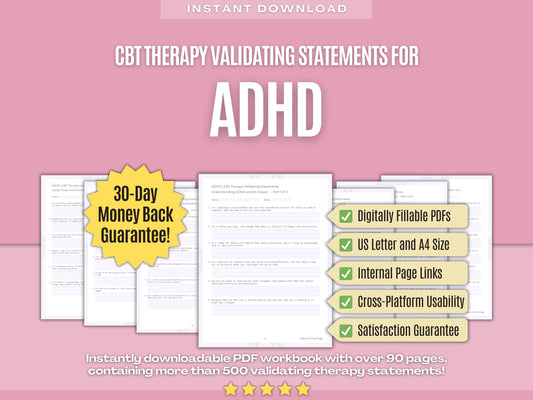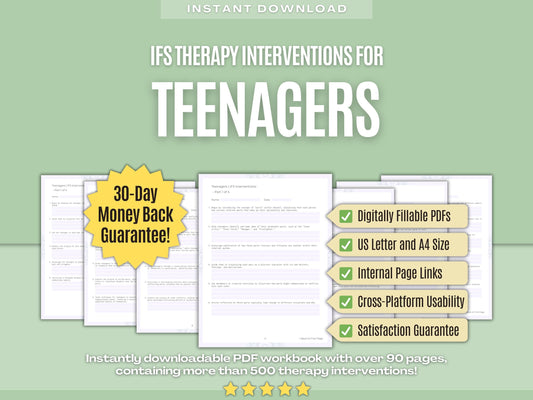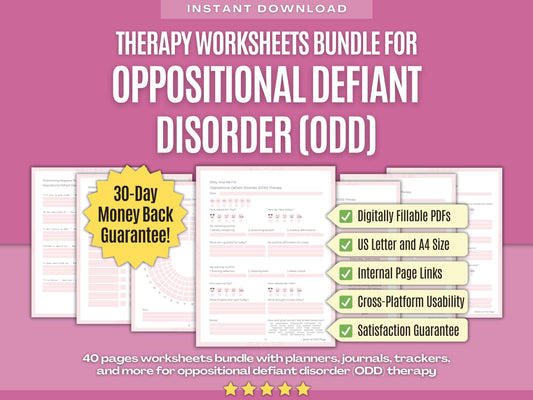Elevate Your Therapy and Guide Your Clients to Inner Healing with Our Depression Validating Therapy Statements! ✨
1. Starting Your Journey
- Beginning this journey takes courage, and I commend you for taking this step towards your well-being.
- It's completely normal to feel a mix of emotions as you start this journey, and it's important to acknowledge and honor those feelings.
- I want to acknowledge the bravery it takes to confront your struggles and seek support, and I'm here to accompany you on this journey.
- It's okay to feel uncertain or apprehensive about what lies ahead; we'll work together to navigate through any challenges that arise.
- I appreciate your trust in me as your therapist, and I'm committed to providing you with the support and guidance you need.
- It's important to be patient and gentle with yourself as you embark on this process of self-discovery and growth.
- I want you to know that you're not alone in this journey; I'm here to listen, support, and empower you along the way.
- Your self-awareness in recognizing the need for support is a positive step towards healing, and I'm here to help you explore and understand yourself better.
- Your willingness to explore new perspectives and possibilities demonstrates openness to growth and change.
- I want to assure you that your feelings are valid and important, and it's okay to express them openly and honestly.
- Your commitment to your well-being is commendable, and I'm here to support you in cultivating a fulfilling and meaningful life.
2. Understanding Depression
- It's important to recognize that depression is a complex and multifaceted experience that can impact various aspects of your life.
- Depression can manifest differently for everyone, and it's important to honor and validate your unique experiences.
- It's common for depression to affect your energy levels, motivation, and ability to engage in daily activities, and it's okay to seek help for these challenges.
- Your struggle with depression is not a sign of weakness; it's a reflection of the immense strength it takes to endure and seek help.
- Your experiences with depression may be influenced by various factors, including genetics, environment, and life circumstances, and it's okay to explore these factors in therapy.
- Your feelings of guilt or self-blame are common experiences for individuals struggling with depression, but it's important to practice self-compassion and forgiveness.
- Your willingness to seek help and engage in therapy is a positive step towards understanding and managing your depression.
- Your journey towards understanding depression may involve exploring past experiences, traumas, or patterns that contribute to your current struggles.
- Your feelings of sadness, anger, or numbness are valid responses to the challenges you're facing, and it's important to express and process these emotions in a safe environment.
- Depression can sometimes distort your perception of reality, making it difficult to see the positives in your life, but I'm here to help you find hope and meaning amidst the darkness.
- Depression can impact your sense of identity and self-worth, but it's important to remember that you are inherently valuable and deserving of love and support.
3. Practicing Mindfulness
- Mindfulness is a powerful tool that can help you cultivate awareness, acceptance, and presence in the present moment.
- It's important to approach mindfulness with curiosity, patience, and compassion towards yourself.
- Mindfulness can help you develop a deeper understanding of your thoughts, emotions, and bodily sensations, leading to greater self-awareness and insight.
- It's normal to encounter challenges and distractions while practicing mindfulness, and it's important to approach these obstacles with patience and self-compassion.
- Your practice of mindfulness can help you develop a greater sense of presence and connection with yourself and the world around you.
- Mindfulness invites you to observe your thoughts and emotions without attachment or judgment, creating space for greater clarity and perspective.
- It's important to approach mindfulness with an attitude of curiosity and exploration, rather than striving for perfection or specific outcomes.
- Your practice of mindfulness can help you cultivate a sense of gratitude and appreciation for the simple moments of joy and beauty in your life.
- Mindfulness can help you develop a greater sense of acceptance towards yourself and your experiences, fostering greater peace and contentment in your life.
- It's important to approach mindfulness with an open mind and a willingness to explore new ways of relating to yourself and your experiences.
- Your commitment to integrating mindfulness into your daily routine reflects a deep desire for healing and growth, and I'm here to support you in that journey.
4. Dialectical Behavior Therapy (DBT) for Mood Regulation
- Dialectical Behavior Therapy (DBT) offers valuable skills and strategies to help you regulate your moods and emotions more effectively.
- It's important to recognize that your emotions, even the most intense ones, serve a purpose and contain valuable information about your needs and experiences.
- Your experiences with depression may be influenced by difficulties in regulating your emotions, and DBT can provide you with practical tools to address these challenges.
- Your commitment to learning and practicing DBT skills is a powerful step towards gaining control over your emotional experiences and improving your overall quality of life.
- DBT emphasizes the importance of mindfulness as a foundation for emotion regulation, teaching you how to stay present and grounded in the midst of strong emotions.
- It's important to approach DBT with an open mind and a willingness to experiment with new ways of thinking and behaving.
- It's normal to encounter difficulties or resistance when first learning DBT skills, but with patience and practice, these techniques can become valuable tools for managing your emotions effectively.
- It's important to celebrate your progress, no matter how small, as you work towards mastering DBT skills and improving your emotional well-being.
- Your commitment to your own growth and well-being is commendable, and I'm here to support you in your journey towards mastering DBT skills.
- Your experiences with depression have taught you resilience and strength, and DBT can help you build upon these qualities as you work towards greater emotional stability and well-being.
- Your progress in DBT may not always be linear, and that's okay; what matters is that you continue to show up for yourself and remain committed to your goals.
5. Interpersonal Therapy (IPT) for Relationships
- Your willingness to explore your relationships demonstrates a strong commitment to your emotional well-being.
- Acknowledging the complexities of your interpersonal dynamics without judgment is a crucial step towards healing and growth.
- You have a right to set boundaries and prioritize your own needs within your relationships.
- Your relationships offer valuable insights into your patterns of communication, attachment, and intimacy.
- It's important to approach your relationships with curiosity and compassion, rather than blame or criticism.
- Your past experiences have influenced your relational patterns, but they don't have to define your future relationships.
- Your struggles in relationships are not a reflection of your worth or competence as a person.
- You have the ability to cultivate healthier relationship dynamics through self-awareness and communication.
- Your interpersonal conflicts may feel overwhelming, but they also present opportunities for deeper connection and understanding.
- Your emotions within relationships are valid and deserve to be acknowledged and expressed.
- Every insight you gain about your relationships brings you one step closer to fostering healthier connections and greater fulfillment.
6. Emotion-Focused Therapy (EFT) for Emotional Healing
- Your willingness to engage in Emotion-Focused Therapy reflects a courageous commitment to your emotional healing and well-being.
- Acknowledging and accepting your emotions without judgment is a crucial step towards healing and growth.
- You have the capacity to experience and express a wide range of emotions, each of which provides valuable information about your inner world.
- Your emotions offer valuable clues about your needs, desires, and areas of inner conflict.
- It's important to approach your emotions with curiosity and compassion, allowing yourself to fully experience and express them.
- Your past experiences have shaped your emotional responses, but they do not have to dictate your present or future; you have the power to create change.
- Your struggles with depression are not a reflection of weakness or failure; they are a natural response to difficult experiences.
- You have the ability to develop healthier ways of coping with and expressing your emotions, leading to greater emotional resilience and well-being.
- Your emotions are not your enemy; they are messengers that carry important information about your inner world and your needs.
- It's okay to seek support and guidance from a therapist or counselor as you navigate the process of emotional healing; you do not have to do it alone.
- Remember that emotional healing is a journey, and it's important to be patient and gentle with yourself along the way.
7. Psychodynamic Exploration of Underlying Issues
- Your willingness to engage in psychodynamic exploration demonstrates a courageous commitment to understanding the underlying issues contributing to your depression.
- Acknowledging and exploring these underlying issues without judgment is a crucial step towards healing and growth.
- You have the capacity to uncover and make sense of the unconscious forces that contribute to your depression, leading to greater self-awareness and healing.
- Your past experiences, particularly those in childhood and early relationships, have a profound impact on your emotional well-being and mental health.
- It's important to approach this process with curiosity and openness, allowing yourself to explore hidden aspects of your psyche.
- Your past experiences, including traumas and losses, may be influencing your current struggles with depression in ways that you may not fully understand.
- Your struggles with depression are not a reflection of weakness or personal failure; they are manifestations of deeper psychological processes that are worthy of exploration and understanding.
- You have the ability to develop a deeper understanding of yourself and your struggles, leading to greater self-acceptance and resilience.
- Your emotions, dreams, and fantasies offer valuable clues about the unconscious forces at play in your depression.
- It's okay to seek support and guidance from a therapist or counselor as you navigate the process of exploring underlying issues; you do not have to do it alone.
- Remember that healing is a gradual process, and it's important to be patient and compassionate with yourself along the way.
8. Soothing with Music Therapy
- Your openness to exploring music therapy as a means of soothing reflects a proactive approach to managing your depressive symptoms and promoting emotional well-being.
- Acknowledging and embracing the therapeutic potential of music without judgment is a crucial step towards finding relief from depression.
- You have the capacity to harness the healing power of music to regulate your mood, reduce stress, and promote relaxation.
- Your musical preferences and experiences offer valuable insights into your unique emotional needs and preferences.
- It's important to approach the therapeutic use of music with curiosity and openness, allowing yourself to explore its effects on your mood and well-being.
- Your emotional responses to music can serve as valuable feedback, guiding the therapeutic process and helping you uncover underlying emotions and experiences.
- Your struggles with depression are not a reflection of musical inadequacy; everyone has the capacity to find solace and comfort in music, regardless of musical background.
- You have the ability to create personalized playlists or musical rituals that provide comfort and support during times of distress.
- Your musical experiences can serve as a source of connection and solidarity with others who share similar tastes and preferences.
- It's okay to seek support and guidance from a therapist or music therapist as you explore the therapeutic potential of music; you do not have to do it alone.
- Remember that there are no right or wrong ways to engage with music therapeutically; the important thing is to find what resonates with you and brings you comfort.
9. Reflecting on Progress
- Your commitment to reflecting on your progress reflects a proactive approach to your mental health and well-being, demonstrating a willingness to engage in self-awareness and growth.
- Acknowledging and honoring your progress without judgment is a crucial step towards building confidence and resilience.
- You have the capacity to recognize and appreciate the positive changes and improvements you've experienced, even amidst the challenges of depression.
- Your ability to reflect on your progress allows you to gain valuable insights into what strategies and interventions are most effective for you.
- It's important to approach this process with curiosity and openness, allowing yourself to explore the nuances of your journey and the lessons you've learned along the way.
- Your willingness to reflect on your progress demonstrates a commitment to self-awareness and personal development.
- Your struggles with depression do not negate the progress you've made; every step forward, no matter how small, is significant and worthy of recognition.
- You have the ability to set meaningful goals for yourself and to take concrete steps towards achieving them, even in the face of depression.
- Your progress serves as a reminder of your inner strength and resilience, even during the darkest moments of depression.
- It's okay to seek support and guidance from a therapist or counselor as you navigate the process of reflecting on your progress; you do not have to do it alone.
- Remember that healing and growth are not linear processes; setbacks and plateaus are a natural part of the journey.
10. Looking Forward
- Your willingness to look forward reflects a hopeful and proactive stance towards your journey of managing depression, indicating a readiness to embrace change and growth.
- Acknowledging and embracing the potential for positive change without judgment is a crucial step towards fostering optimism and resilience.
- You have the capacity to envision and work towards a future that is filled with greater peace, joy, and fulfillment, despite the challenges you face.
- Your ability to envision a brighter future for yourself is a testament to your resilience and inner strength, even in the face of adversity.
- It's important to approach the process of looking forward with curiosity and openness, allowing yourself to explore new possibilities and opportunities.
- Your willingness to look forward demonstrates a commitment to self-improvement and personal development, even in the face of setbacks.
- Your struggles with depression do not define your future; you have the power to shape your own destiny and create a life that is meaningful and fulfilling.
- You have the ability to take proactive steps towards building a future that aligns with your values, interests, and aspirations.
- Your past experiences, including challenges and setbacks, have equipped you with valuable insights and skills that can support you as you move forward.
- It's okay to seek support and guidance from a therapist or counselor as you navigate the process of looking forward; you do not have to do it alone.
- Remember that the journey of healing and growth is ongoing, and that setbacks and detours are a natural part of the process.
We hope that our validating therapy statements for Depression therapy will help you to elevate your therapy practice and guide your clients to inner healing! Do you need more validating therapy statements for Depression therapy? Find them all in our Digital Workbook! Or do you have any questions or suggestions for us? Please feel free to contact us at any time!


















